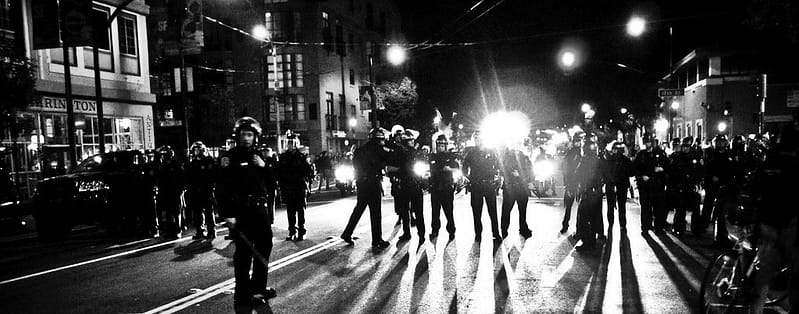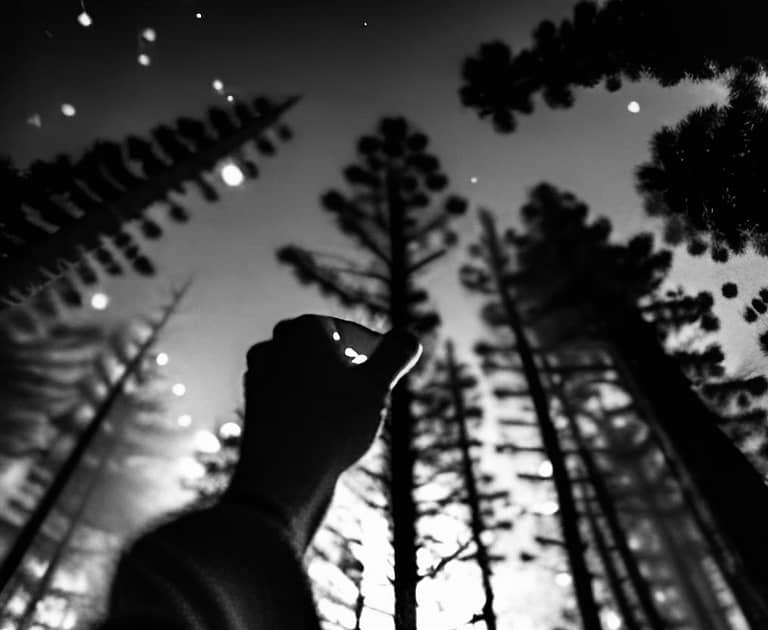There are many sentiments floating around on social media that invoke Martin Luther King and Nelson Mandela as embodiments of peaceful protesting. Many have likened rioters and looters to ‘criminals’ and have condemned outrage as a response to anti-black racism. In the end, why do people riot? In this post, Christina Hutchinson argues that this is in fact the wrong question to ask.
[A] social environment’s specificity not only provides the context within which police lethal violence occurs, but, more importantly, defines the very nature, frequency, perception and experience of police lethal violence. – João Vargas and Jaime Alves
Two years ago, Black Live Matters Toronto (BLM-TO) engaged in a sit-in protest that brought politics back to Pride and opened up conversation in regards to police being part of the parade. While this protest was peaceful, BLM-TO was criticized for ‘halting’ progress and ‘disrupting’ a ‘peaceful’ event meant to bring the city together. The sit-in protest was even described as violent by many media accounts.
When Colin Kaepernick took a knee instead of standing for the national anthem to protest police brutality, he was called a “whiny attention-seeking baby” by (former) Fox news anchor Tomi Lahren. Donald Trump declared that his actions were ‘unacceptable.’
While these examples of peaceful protests certainly brought about change, it was not without resistance and backlash. We need to stop policing the way that people protest and start listening to the messages that are emerging from these acts of defiance, whether peaceful or not. The reality of anti-black racism in our communities is a hard truth-pill to swallow; it makes us uncomfortable. There is, however, a lot that we have to learn within that discomfort. Sit in it. Let us let ourselves feel uncomfortable by the awareness that Black people have been discounted by our society, and that whites have been privileged. Start thinking about how you can help change that.
What do ‘violent’ protests accomplish?
“Nonviolence,” American philosopher Judith Butler writes, is not simply the “absence of violence,” or “the act of refraining from committing violence,” but a “sustained commitment, even a way of rerouting aggression for the purpose of affirming ideals of equality and freedom.” In essence, “nonviolence does not make sense without a commitment to equality.” [1]
Our ideals of ‘equality’ and ‘freedom’ are upheld by what moral philosophers (e.g. Thomas Hobbes, Jean Jacques Rousseau, John Locke) call ‘social contracts.’ A social contract is an agreement between members of a society on how they ought to act and behave cooperatively in order to live as harmonious members of a society. When a society works such that mutual benefits and individual freedoms are upheld by the customs of law and order, compliance and ‘nonviolence’ are the outcome.
When social order erupts because members of a society become aware of the fact that the ‘law and order’ do not protect their civil freedoms – that because of the colour of their skin, they are not recognized as ‘citizens’ or even ‘human,’ what does ‘nonviolence’ do but affirm ideals that are not afforded to them? When a police officer blatantly disregards the ‘law’ that is supposed to allow members of a society to cooperate and work harmoniously, is quietude to be expected? Police officers, like educators and lawyers, serve as role models who represent the moral order and code. When police officers continuously break moral order with impunity, people no longer buy into the ‘social contract’ that binds them to society.
In The Racial Contract, Jamaican philosopher Charles W. Mills argues that there are, in fact, several different “social contracts” that operate to regulate behaviour in society. One such contract is the “racial contract” which categorizes a “subset” of humanity that is “non-white” and therefore defined by a “different and inferior moral status.” Under this code, such individuals or “sub-persons” have a “subordinate civil standing in the white or white-ruled polities.” [2] In other words, the racial contract is an agreement that promotes the ideals of white supremacy by designating those who are non-white as having an inferior moral and civil status.
After recent events, communities are no longer abiding by the a racial contract that allows crooked cops to destroy their communities without punishment. This breach in the social contract has brought forth a lot of anger from oppositions, like Donald Trump, who stand to lose a lot from the exposure of white supremacy within the socio-political and legal order. It’s about time we re-evaluated the laws and moral codes that govern our societies and start advocating for social reform that is removed from white supremacy.
Instead of asking: Why do people riot, and loot? Is there a better way to protest? We should be asking: What do they have to lose? Why not riot and loot?
[1] Butler, Judith. 2020. The Force of Nonviolence
[2] Mills, Charles W. 1997. The Racial Contract
Photo: eviloars



